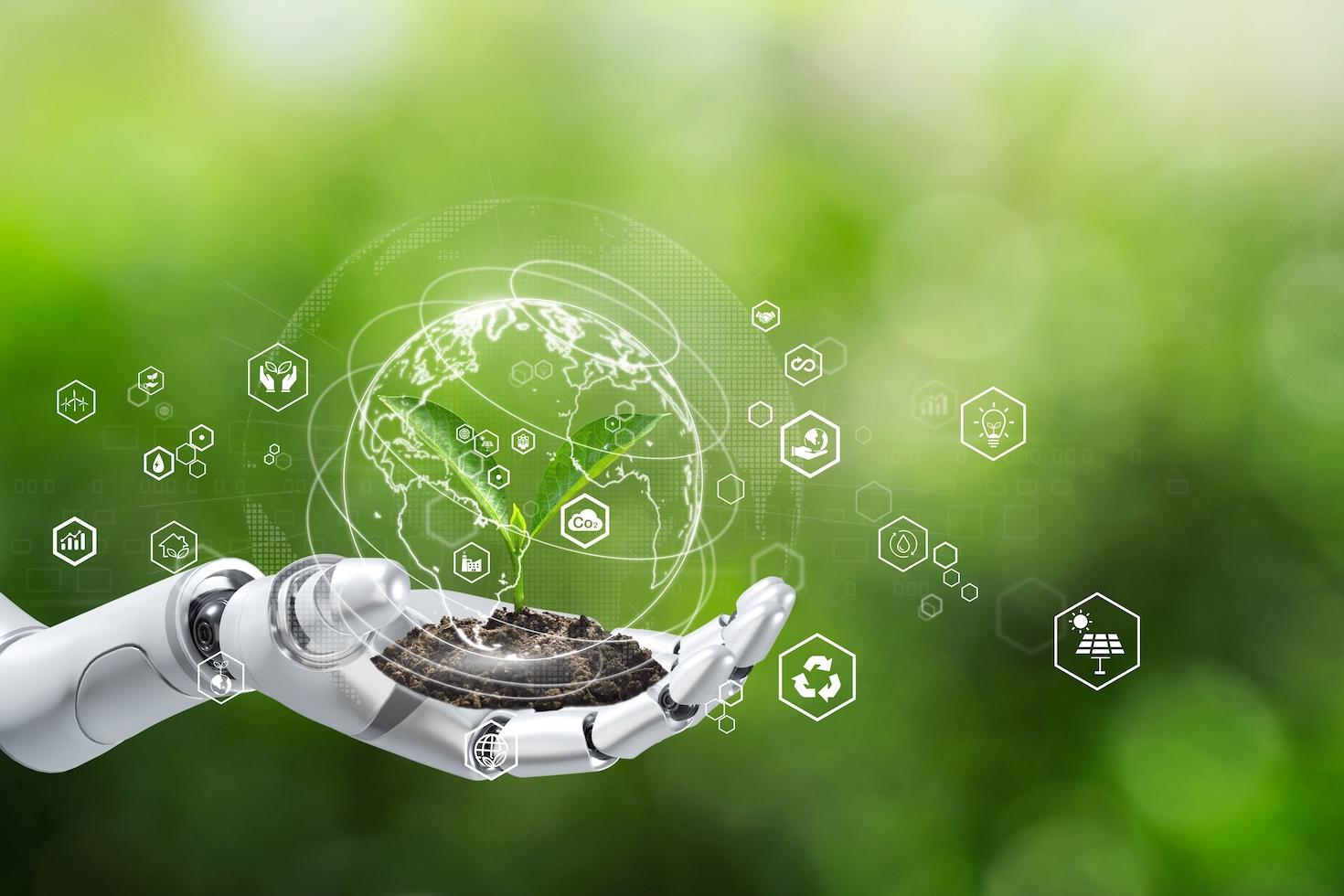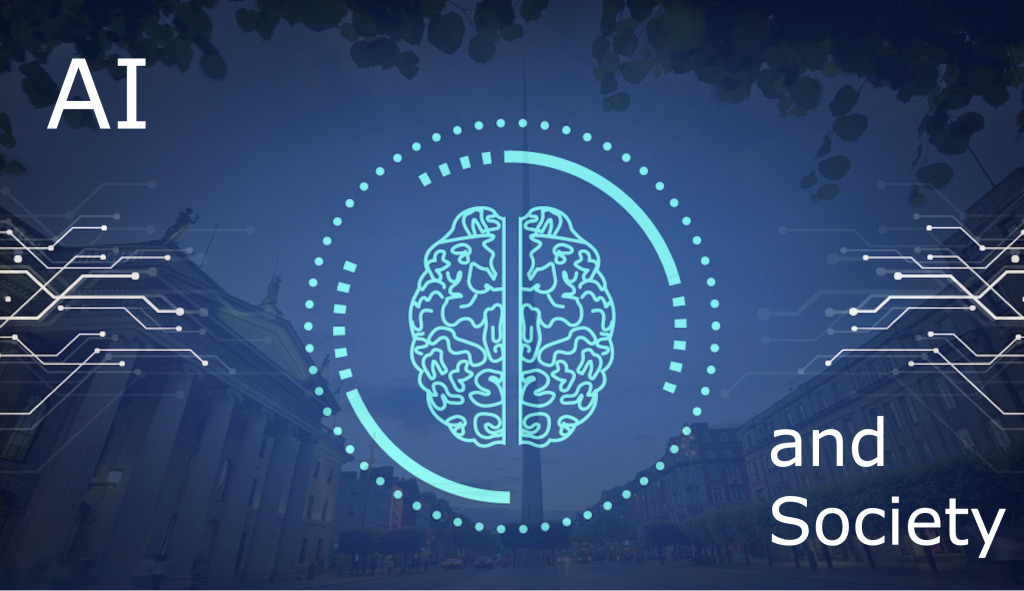
AI as a Driving Force For Addressing Common Challenges
The transformative potential of AI
Project CORaiL is an artificial intelligence (AI)-powered solution deployed to the reef surrounding Pangatalan Island in the Philippines to assist researchers with monitoring and restoring the coral reef, which provides many benefits to local communities and beyond.Smart Cities use AI to optimize traffic flow to reduce congestion and emissions. Facing several challenges including rising cost of goods and supply chain volatility, a North American convenience retailer uses AI to develop a pricing strategy that led to better sales and profits as well as customer perception. In many ways, AI has captured much of our attention in recent years with its potential to help organizations become more innovative, efficient, and sustainable. At the societal level, AI is now deemed essential for solving the climate crisis.
According to a recent McKinsey survey, the use of AI is now widespread among such industries as energy, healthcare, and consumer goods. Many organizations are currently experimenting with generative AI tools – considered the “next frontier” – to identify trends in customer needs and develop personalized marketing. Companies such as Mars, Colgate-Palmolive, Nestle, and Coca-Cola are hoping to gain a competitive advantage by using generative AI to accelerate product innovations and create more impactful marketing content. At the 2024 World Economic Forum, AI was being explored by world leaders as a driving force that benefit society overall. Along the same lines, the UN and its stakeholders recently convened to explore new opportunities that AI can bring to accelerate progress on the UN Sustainable Development Goals (SDGs).
The impact of AI on sustainable business practices
A research by PwC UK, commissioned by Microsoft, suggests that AI capabilities can be applied to a wide range of economic sectors – agriculture, water, energy and transport – to contribute to managing environmental impacts and climate change. The same study estimates that AI could reduce worldwide greenhouse gas emissions by 4% in 2030, as well as contribute up to $5.2 trillion USD to the global economy in the same year. The following depict how AI is being harnessed across different sectors to meet sustainability goals:
- As part of its Net-Zero strategy to eliminate all of the company’s CO2 emissions by 2040, Enel is leveraging the analytical and predictive capacities of AI to transition to smart grids to efficiently manage energy supply and demand.
- To overcome challenges in vertical farming such as energy consumption and limited crop variety, Bowery relies on machine-learning algorithms to refine the best growing conditions across its indoor farms, as well as ensure more efficient use of water and energy in its entire operation.
- Unspun uses robotics for manufacturing and body scanning and AI software to create custom-fit denim and apparel as a way to reduce fashion waste. The company commissioned a Life Cycle Assessment (LCA) to quantify the effects of its 3D weaving technology on climate change and to measure the impact of its business model on society.
- The IRCAI (International Research Center on Artificial Intelligence), under the auspices of UNESCO, has compiled a list of the top 100 projects using AI to solve problems related to the 17 United Nations Sustainable Development Goals in such areas as education, decent work and economic growth, good health and well-being, and affordable and clean energy.
AI clearly has a role to play in helping organizations meet their sustainability goals; first by identifying opportunities to become more efficient in their operations as well as throughout value chains, and then by monitoring and reporting progress. As AI can collect massive amounts of data, companies can rely on its capabilities to track their carbon footprint and improve efficiency of the value chain or generate additional revenues and cost savings. While the use of AI by itself cannot help an organization advance on its sustainability targets, robust sustainability data capabilities derived by AI can inform timely and effective decision-making.
It has been pointed out that businesses benefit the most when they optimize collaboration between humans and AI. A research involving 1,500 companies found that organizations achieve the most significant performance improvements when there is “collaborative intelligence,” that is, when humans and AI enhance each other’s complementary strengths. The notion of using human expertise and AI on a larger scale is reflected in the mission of Ubuntoo, which is a digital collaboration platform that harnesses “collective intelligence” to unlock solutions that can impact sustainability. AI also holds great promise when it is used in a context of a public-private collaboration such as the new global initiative aiming at using AI capabilities to improve patient care and inefficiencies in the global healthcare system.
Here comes Responsible AI

With more organizations investing in AI capabilities and most of them are third-party tools, there is now a call for these organizations to install appropriate governance to assess the risks that come with AI tools. Responsible AI (RAI) is defined as “a framework with principles, policies, tools, and processes to ensure that AI systems are developed and operated in the service of good for individuals and society while still achieving transformative business impact.” In the 2023 RAI Global Survey by MIT Sloan Management Review and Boston Consulting Group, less than half of respondents said they believe their company is prepared to make adequate investments in RAI. Managing AI-related risks, however, is considered a “pressing leadership challenge” for some of these companies.
Last year the Biden Administration was able to secure voluntary commitments from seven AI leading companies – Amazon, Anthropic, Google, Inflection, Meta, Microsoft, and OpenAI – to move toward safe, secure, and transparent development of AI technology. One of the key takeaways from Davos 2004 was that while AI can help solve the climate crisis, governance and ethics are crucial to the future of sustainability-focused AI applications. Some of the “7 principles for human-centric AI” coming out of the World Economic Forum include fairness and inclusion, accountability, and transparency.
Implications of AI on society

The question of how to use AI to benefit rather than harm individuals and society will most likely continue in the near future. How AI can be turned into a force for good is a worthwhile topic to explore. While some seem to focus more on what is the next breakthrough in AI, others will continue to engage in discussions on how to unlock the potential of AI so that common challenges can be addressed in the most effective way. Perhaps this is the true value of AI that we need to harness: how to leverage its capabilities to make us smarter in working together towards unifying goals.
Anh-Dai Lu is an educator who has served on the faculty of various business programs. She currently participates in initiatives and ecosystems to help promising start-ups address pressing societal challenges.





